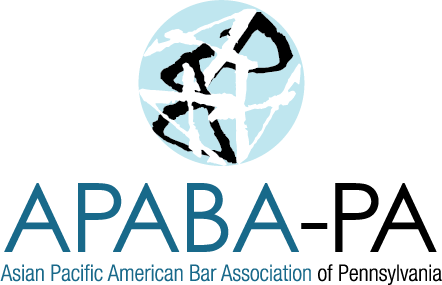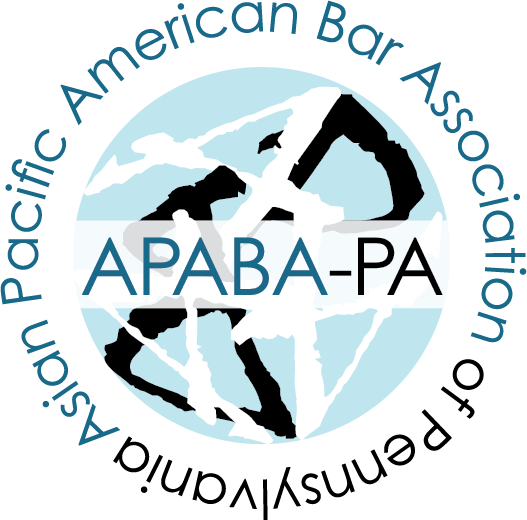RESOLUTION CALLING ON THE PENNSYLVANIA BOARD OF PARDONS TO EXPEDITE THE PROCESS BY WHICH PARDON APPLICATIONS FROM NON-INCARCERATED CITIZENS CAN BE HEARD
WHEREAS, the Asian Pacific American Bar Association of Pennsylvania (APABA-PA) is committed to supporting the protection of civil rights and is committed to advancing the fair and effective administration of justice; and
WHEREAS, Southeast Asian refugees represent the largest refugee community ever to be resettled in the United States, after being forcefully displaced by U.S. war and its aftermath in Laos, Cambodia, and Vietnam in the 1970s; and
WHEREAS, refugees were often resettled in urban centers of concentrated poverty with few social or economic supports; and
WHEREAS, given these social conditions, Southeast Asian American young people were disproportionately recruited into gangs and violence in the 1970s and 1980s, and their involvement in gangs and criminal activity often led to criminal convictions; and
WHEREAS, as a result, today, those Southeast Asian refugees who arrived in the 1970s and 1980s and who may have participated in gangs or criminal activities, are now receiving deportation orders on the basis of decades-old criminal convictions; and
WHEREAS, due to stringent immigration policies enacted in 1996, Southeast Asian American communities are three to four times more likely to be deported for old convictions, compared to other immigrant communities; and
WHEREAS, a majority of these Southeast Asian refugees who are vulnerable to deportation have lived in the U.S. for years as permanent residents, have completed serving their time for their decades-old convictions, and have transformed their lives – growing their families, building their careers, and getting involved in their communities; and
WHEREAS, since 1998, over 16,000 community members have received final orders of deportation, and more than 13,000 of these were based on decades-old criminal records (80% of total Southeast Asian American deportation orders, compared to 29% of all immigrants with deportation orders); and
WHEREAS, over the past few years, the Pennsylvania Board of Pardons has changed the pardon application process so that it is hearing more applications each year, but even with these reforms, the most applications it has heard in any one year is only 363; and
WHEREAS, based on available data in Pennsylvania, 25,000 people (on average) return to Philadelphia from incarceration in local, state, and federal jails and prisons every year and ninety-one percent (91%) of them are released to addresses in low-income neighborhoods, demonstrating not only the substantial number of Philadelphians with criminal records, but also the compounding problem faced by low-income/high-arrest neighborhoods; and
WHEREAS, as of February 14, 2019, there were 1,300 applications that had been filed with the Board of Pardons but not yet assigned to an investigator – that is, virtually every application for pardon filed after January 1, 2016 – which will take more than two years to investigate; and
WHEREAS, this backlog is preventing Pennsylvanians from obtaining jobs, housing, education, credit and other opportunities for which they are qualified – and the backlog will only increase now that the application process has been reformed and made so much more accessible; and
WHEREAS, the two largest workforce development agencies in Pennsylvania have confirmed, as recently as March 7, 2019, that “it is undeniable that criminal records are a major factor in keeping people in poverty”; and
WHEREAS, on March 14, 2019, the Pennsylvania Board of Pardons unanimously voted to eliminate all application fees and to post the application forms online, and, further, on April 8, 2019, announced the appointment of Brandon Flood, himself the recipient of a pardon, as the new Secretary of the Board, thereby clearly expressing its intention to make the pardon process far more accessible to Pennsylvanians with criminal records; and
WHEREAS, the only way for an individual who is not 70 years old to remove a conviction of crime from her or his record is by first obtaining a pardon from the Governor following application to and recommendation by the Board of Pardons; and
WHEREAS, every other state in the nation that grants 100 or more applications per year does so in a process that takes one year or less;
NOW, THEREFORE, BE IT RESOLVED, that the Asian Pacific American Bar Association of Pennsylvania expresses its appreciation to and support for the Lieutenant Governor, who chairs the Board of Pardons, and the full Board of Pardons for its recent actions making the possibility of obtaining a pardon far more accessible, thereby increasing hope for better lives for those who have turned their lives around and merit a second chance.
AND BE IT FURTHER RESOLVED, that the Asian Pacific American Bar Association of Pennsylvania calls on the Board of Pardons to develop policies and procedures that will allow the Board to hear within one year from the date the application is filed as many applications as possible from non-incarcerated individuals who have been successfully living and working in our communities.
AND BE IT FURTHER RESOLVED that the Asian Pacific American Bar Association of Pennsylvania authorizes the President or the President’s designee to communicate the content of this Resolution to elected officials in Pennsylvania, other public officials, other bar associations, and the public at large, and to take such other action as may be appropriate.
ADOPTED: November 10, 2021
Distribution Copy
- On December 1, 2021

